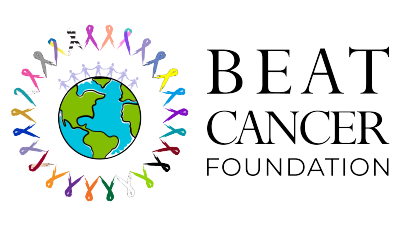
EGCG in Green Tea

The Power of EGCG in Green Tea: A Fight Against Cancer
Green tea, procured from the unoxidized and unfermented leaves of the Camellia sinensis, is more than just a comforting beverage; it may be a formidable adversary in our fight against cancer. The crux of this fight lies in a key polyphenol compound found in green tea - Epigallocatechin-gallate, or EGCG, which exhibits potent antioxidant, anti-inflammatory, and free-radical scavenging characteristics. These properties have been shown to inhibit carcinogenesis by affecting a multitude of pathways and promoting apoptosis in both cancer cells and cancer stem cells, demonstrating its potential in cancer prevention and treatment.
EGCG: The Green Tea Warrior in Cancer Battles
Through comprehensive studies, EGCG has gained substantial recognition for its capacity to combat cancer, most notably highlighted in the reviews of Dr. Cord Naujokat, Centre of Immunology in Heidelberg Hospital and the Centre of Targeted Oncology in Neckersteinach, Germany, and Dr. Dwight McKee of Integrative Cancer Consulting in California, USA. Their extensive research reveals EGCG's ability to tackle Cancer Stem Cells (CSCs), the core culprits in cancer propagation resistant to existing drugs, suggesting it could potentially stymie tumor regeneration.
Green tea and EGCG are not confined to preventive measures alone; compelling evidence indicates their efficacy in impeding cancer progression. Remarkably, EGCG has exhibited potential in curtailing the spread of diverse cancers such as leukemia, colorectal cancer, prostate cancer, breast cancer, and head and neck cancer. Current clinical trials are exploring EGCG's potential with breast cancer, prostate cancer, and bladder cancer.
Furthermore, EGCG accounts for approximately 70% of the total catechin content of green tea. This polyphenol has demonstrated synergistic effects with turmeric or curcumin, another potent CSC assailant, amplifying their combined therapeutic effect.
Green Tea: A Beacon of Hope in Cancer Studies
Remarkable findings from past research studies reveal the following:
- A 9-year study conducted by the Tohoku School of Medicine involving 42,000 individuals demonstrated that consuming 5 cups of green tea daily could reduce the risk of blood cancers and cancers in the lymph nodes by 40 and 50 percent, respectively (American Journal of Epidemiology 2009).
- In clinical trials conducted by the Mayo Clinic, high doses of Polyphenon E (derived from EGCG) for 2 months decreased the damaged white cell count by one-third in CLL patients, contributing to cancer regression (Journal of Clinical Oncology).
- Randomized clinical trials on men with a high risk of prostate cancer showed those consuming EGCG developed significantly less disease compared to those taking a placebo (National Cancer Institute).
- Studies indicate that EGCG accumulates in the prostate gland, slowing the growth of cancer cells, and reducing PSA and IGF-1 levels.
- EGCG has shown potential in preventing breast cancer and suppressing its growth, preventing recurrence.
The Tohoku School of Medicine followed 42,000 individuals over nine years, concluding that consuming five cups of green tea daily could reduce the occurrence of blood cancers and lymph node cancers by a substantial 40% and 50%, respectively.
EGCG is one of the polyphenol compounds known to prevent the regrowth of stem cell cancer. When dietary consumption is not possible, quality supplements are recommended.
In the realm of clinical trials, the Mayo Clinic has utilized EGCG in battling chronic lymphocytic leukemia (CLL). They found that high doses of Polyphenon E, derived from EGCG, could decrease damaged white cell counts, instigating cancer regression and reducing enlarged lymph nodes.
Several studies have further corroborated EGCG's potential in prostate cancer. In randomized clinical trials on high-risk individuals, those administered EGCG manifested significantly less disease progression compared to the placebo group. Another study found that EGCG concentrates in the prostate gland, retarding cancer cell growth and reducing PSA and IGF-1 levels.
The versatility of EGCG extends to breast cancer as well, where it has been found to not only prevent its occurrence but also mitigate its recurrence by curbing the growth of cancer cells. This potential to reduce metastasis has been observed across different types of cancers.
EGCG: A Promising Supplement in the Fight Against Cancer
Despite its numerous benefits, it's worth noting that EGCG comprises only a portion of green tea's total catechin content. In certain situations, it may be more beneficial to consume EGCG through quality supplements if adequate amounts of green tea cannot be ingested. In such cases, a recommended dose is around 300 mg once daily.
Green tea and EGCG are not just limited to cancer prevention and treatment. The polyphenols in green tea are powerful antioxidants that protect against heart disease by preventing the formation of LDL cholesterol. Additionally, EGCG is known to protect the brain from amyloid protein build-up, offering potential preventive measures against Parkinson's and Alzheimer's disease.
In conclusion, while research continues to uncover the full potential of EGCG and green tea, their role in cancer prevention and treatment is undeniably promising. However, it is crucial to remember that green tea is a supplement to, and not a substitute for, prescribed cancer treatments. As always, any changes to a treatment plan should be discussed with a healthcare provider.
References:
1. Prostate Cancer, Nutrition, and Dietary Supplements (PDQ®)–Patient Version
3. A comprehensive review of the health perspectives of resveratrol
4. Green Tea Polyphenols Extend the Lifespan of Male Drosophila melanogaster While Impairing Reproductive Fitness
5. Green Tea May Cut Stroke Risk
6. The "Big Five" Phytochemicals targeting Cancer stem Cells - 2020, Researchgate
7. The effects of Green tea with Obesity and Type-2 diabetes
8. Comprehensive review; green tea and glucose and insulin levels
“Knowing all your treatment options could be life-saving!”
Location
Sheridan, WyomingTogether, we can beat cancer
Thank you for your interest in the Beat Cancer Foundation. We are here to support you every step of the way in your cancer treatment journey. Please fill out the form below, and our team will be in touch with you shortly. Together, we can beat cancer. (307) 291-0991

